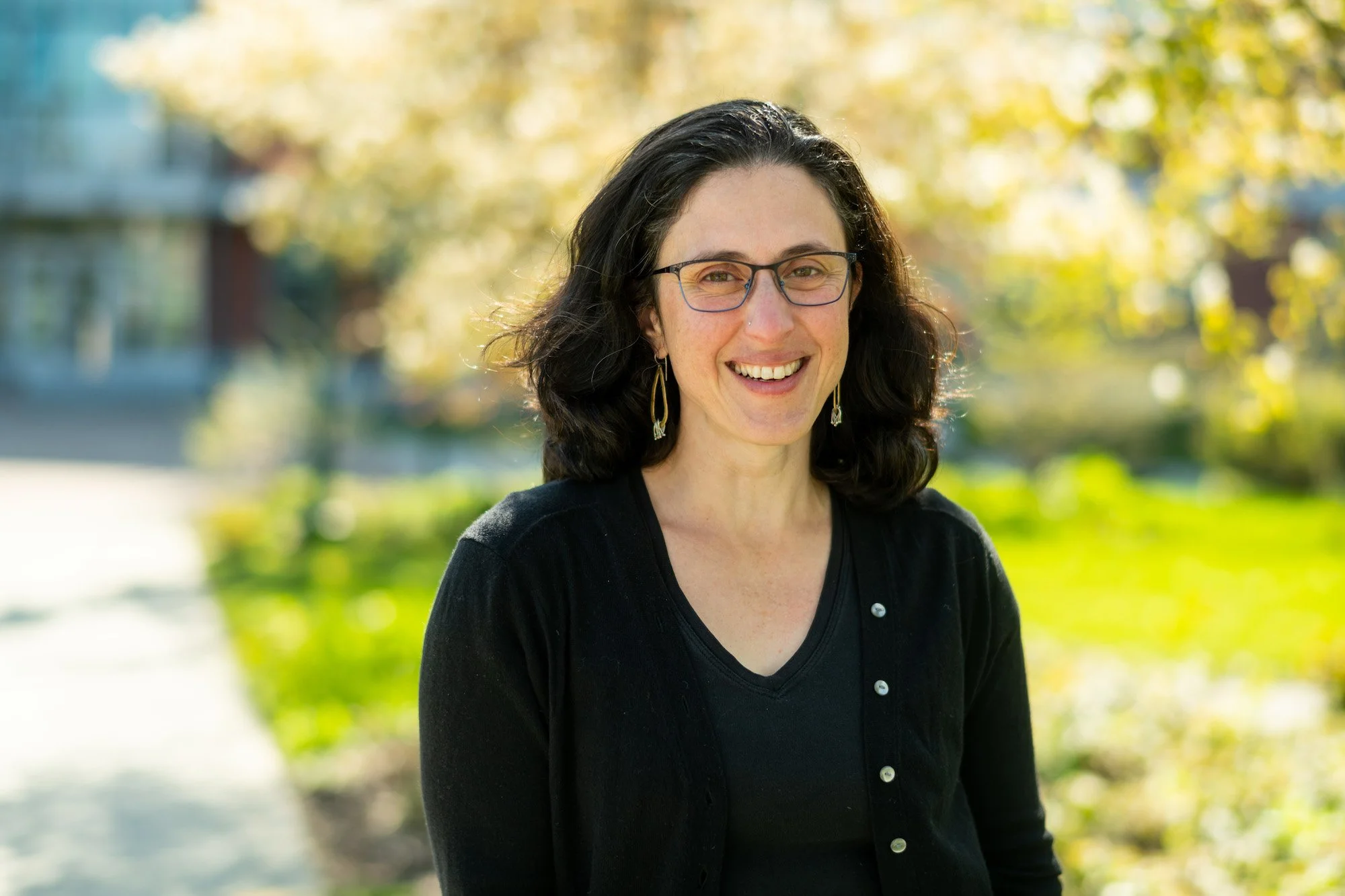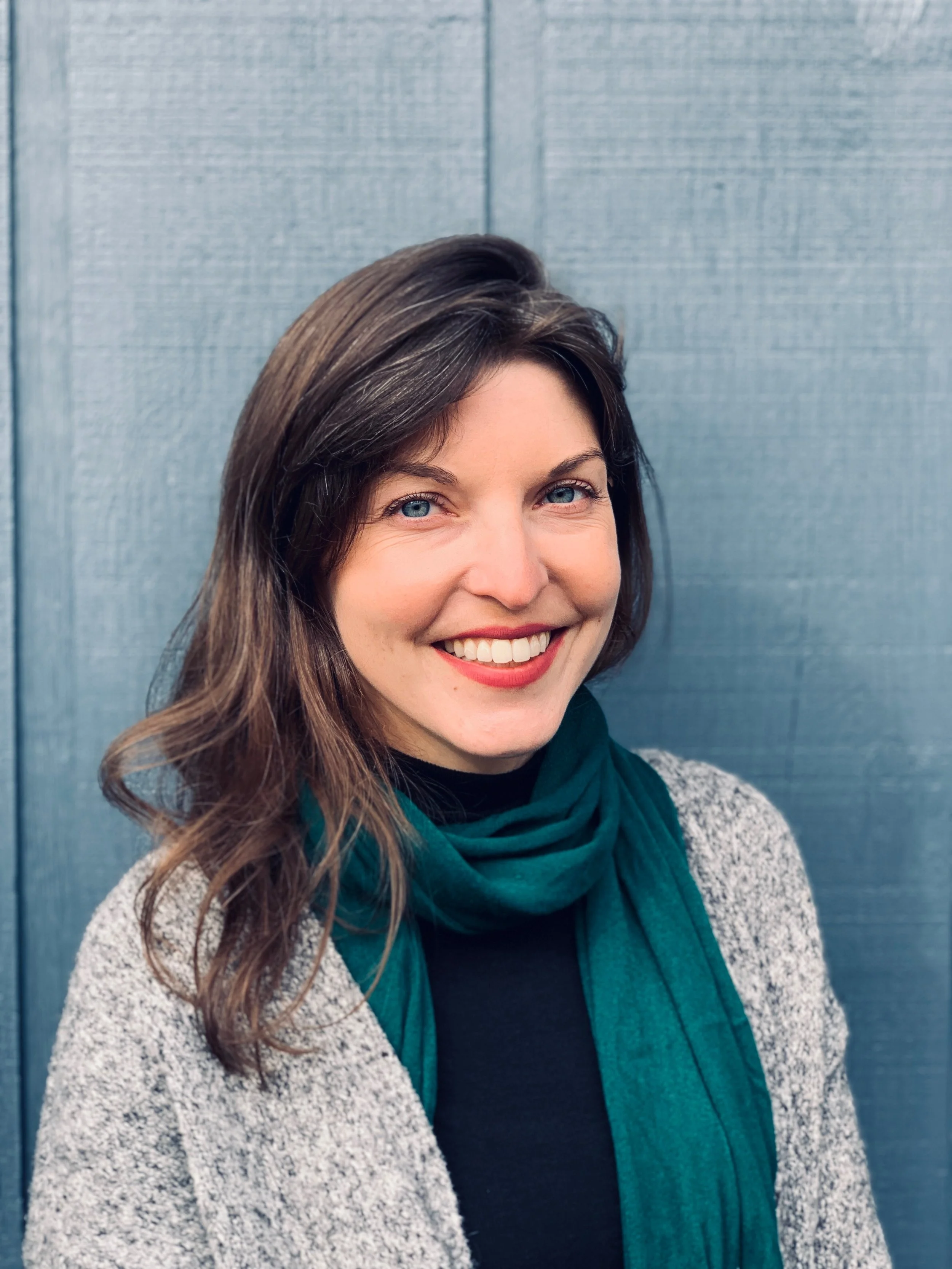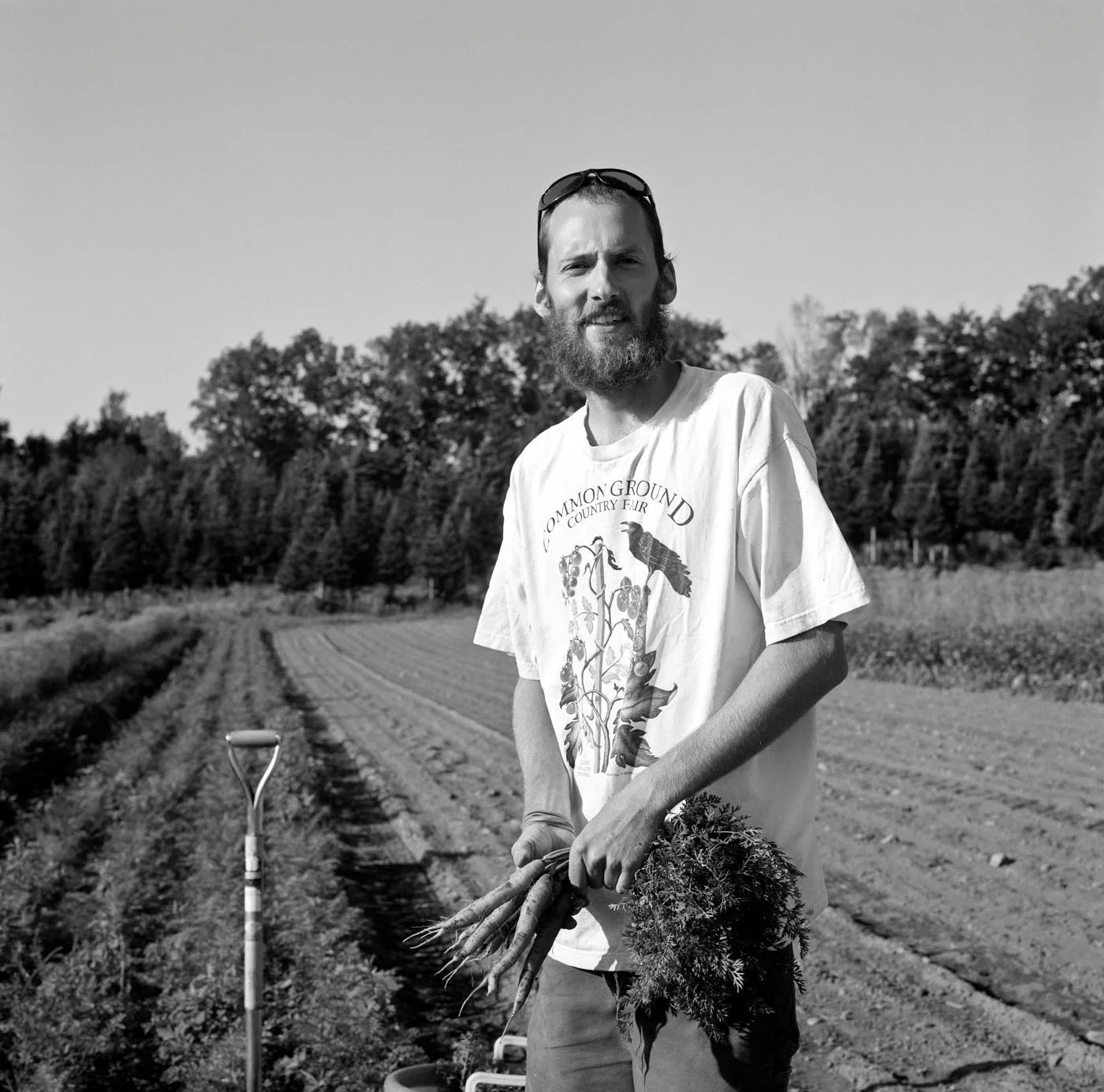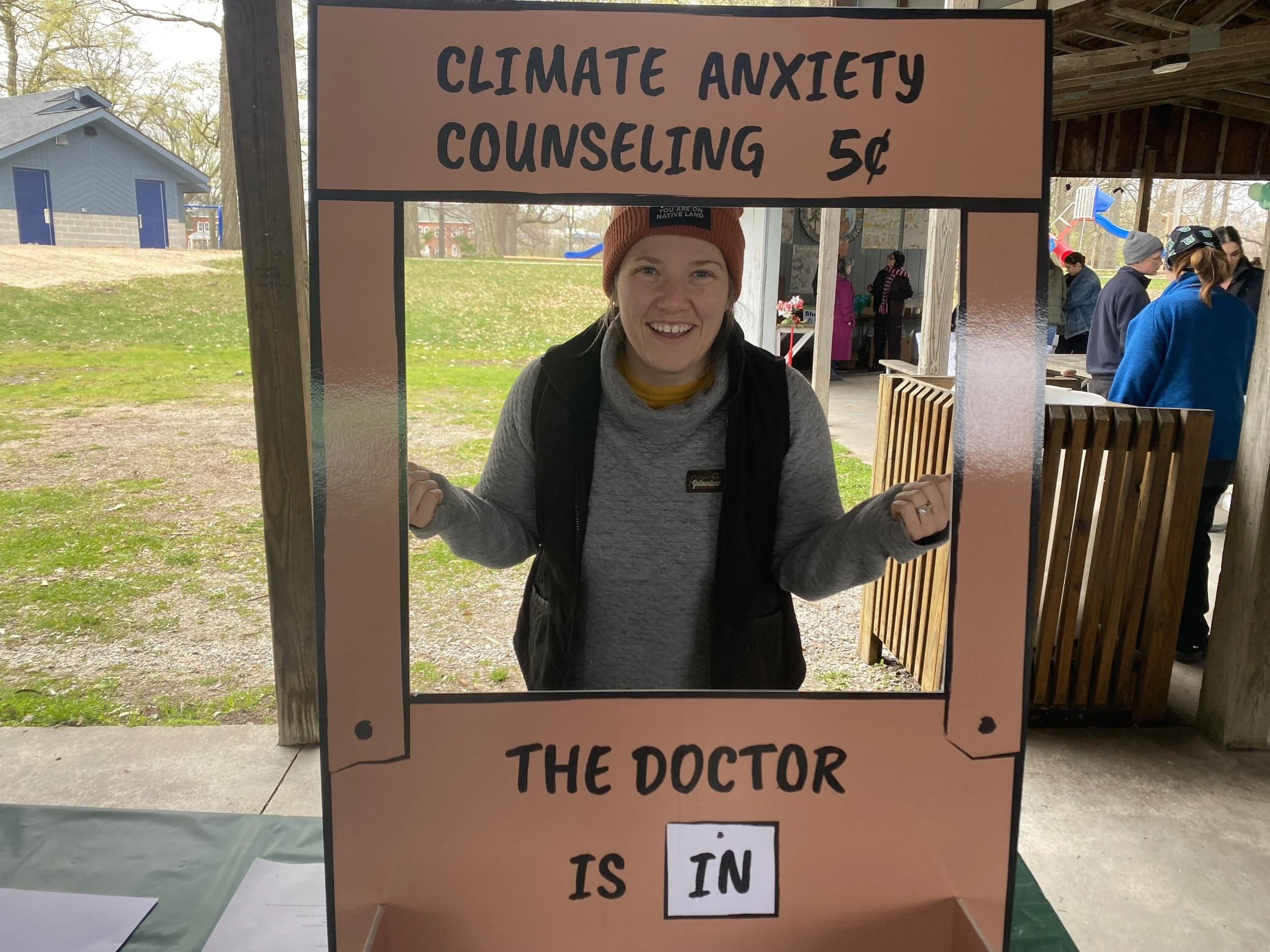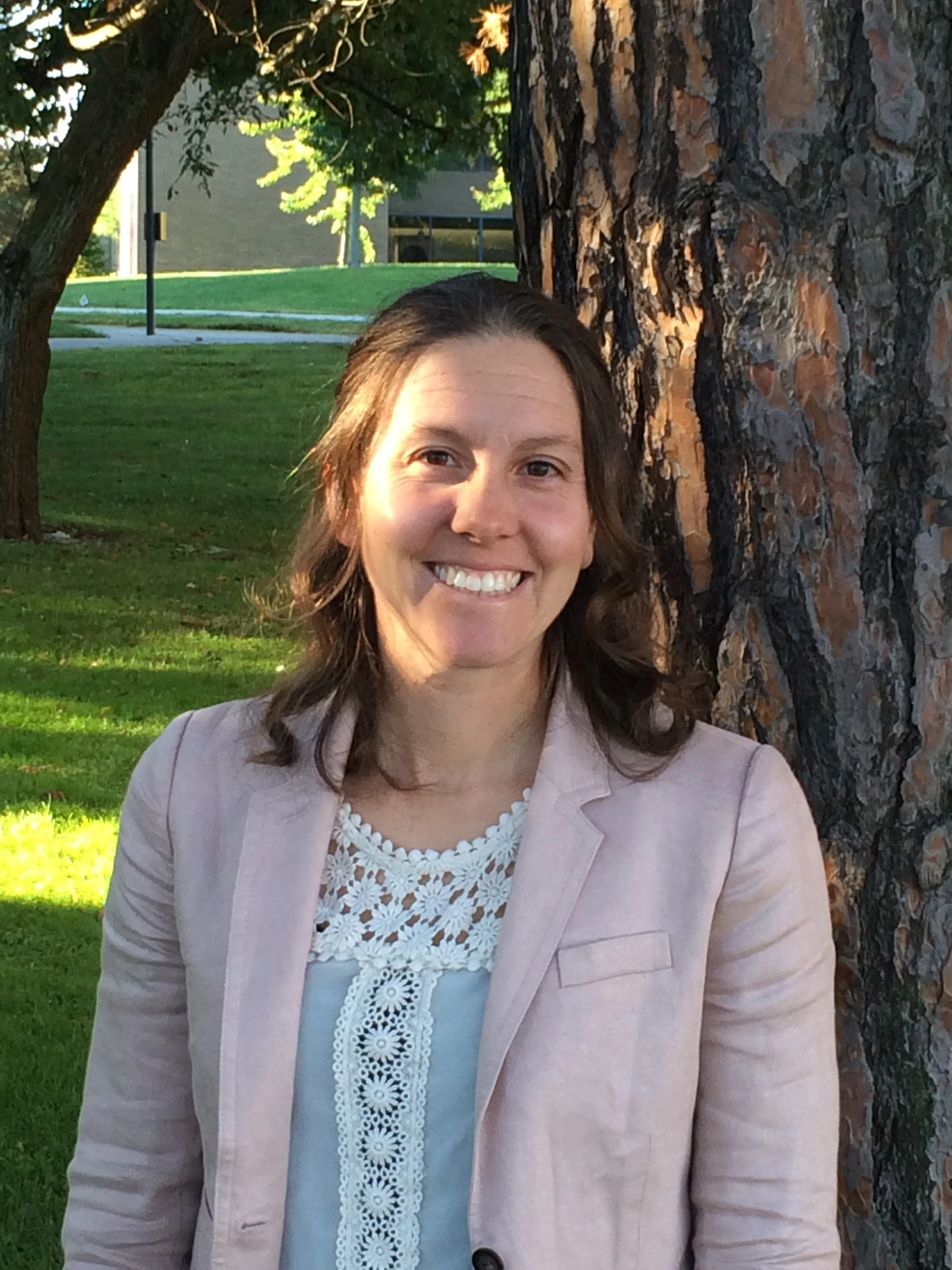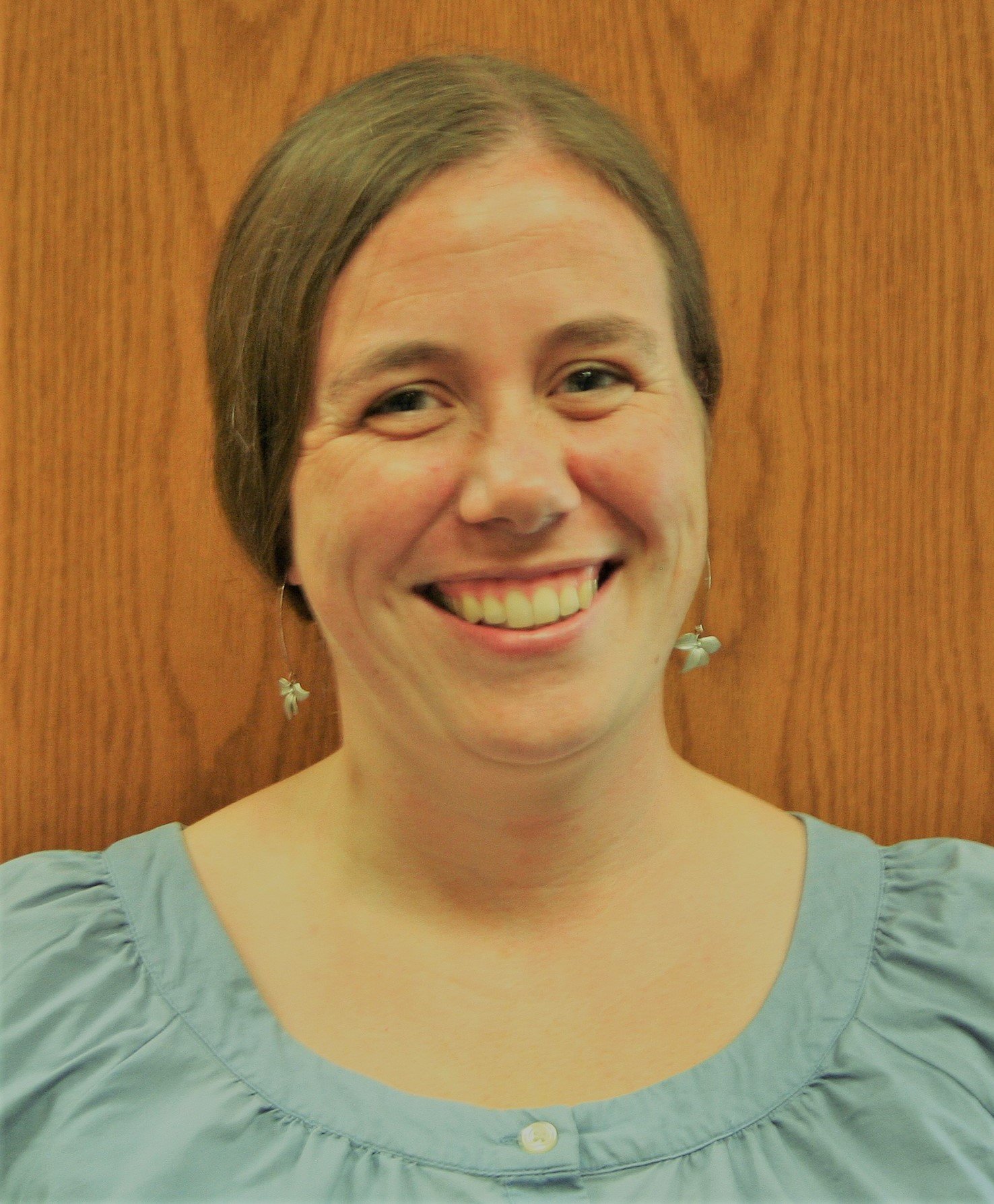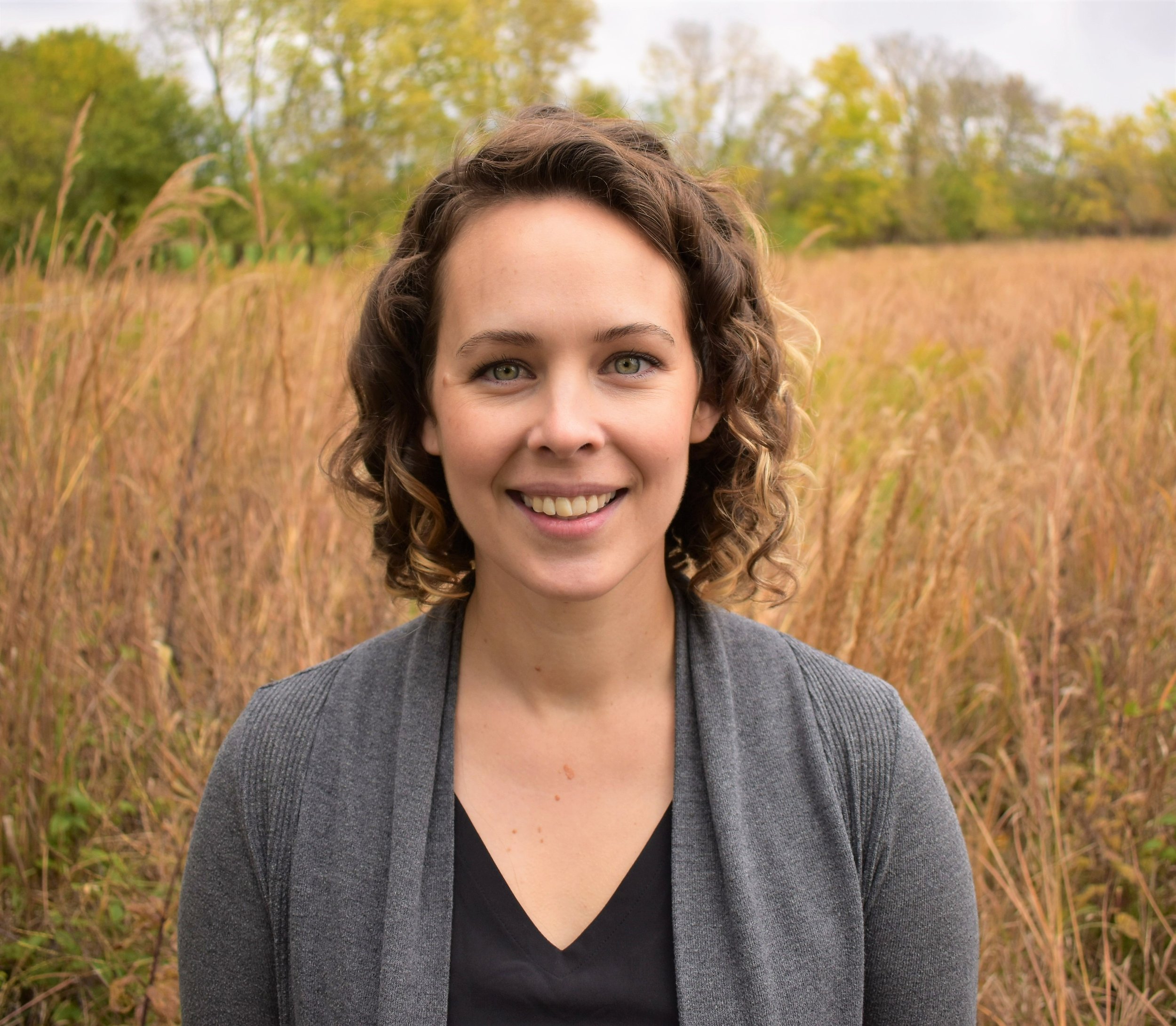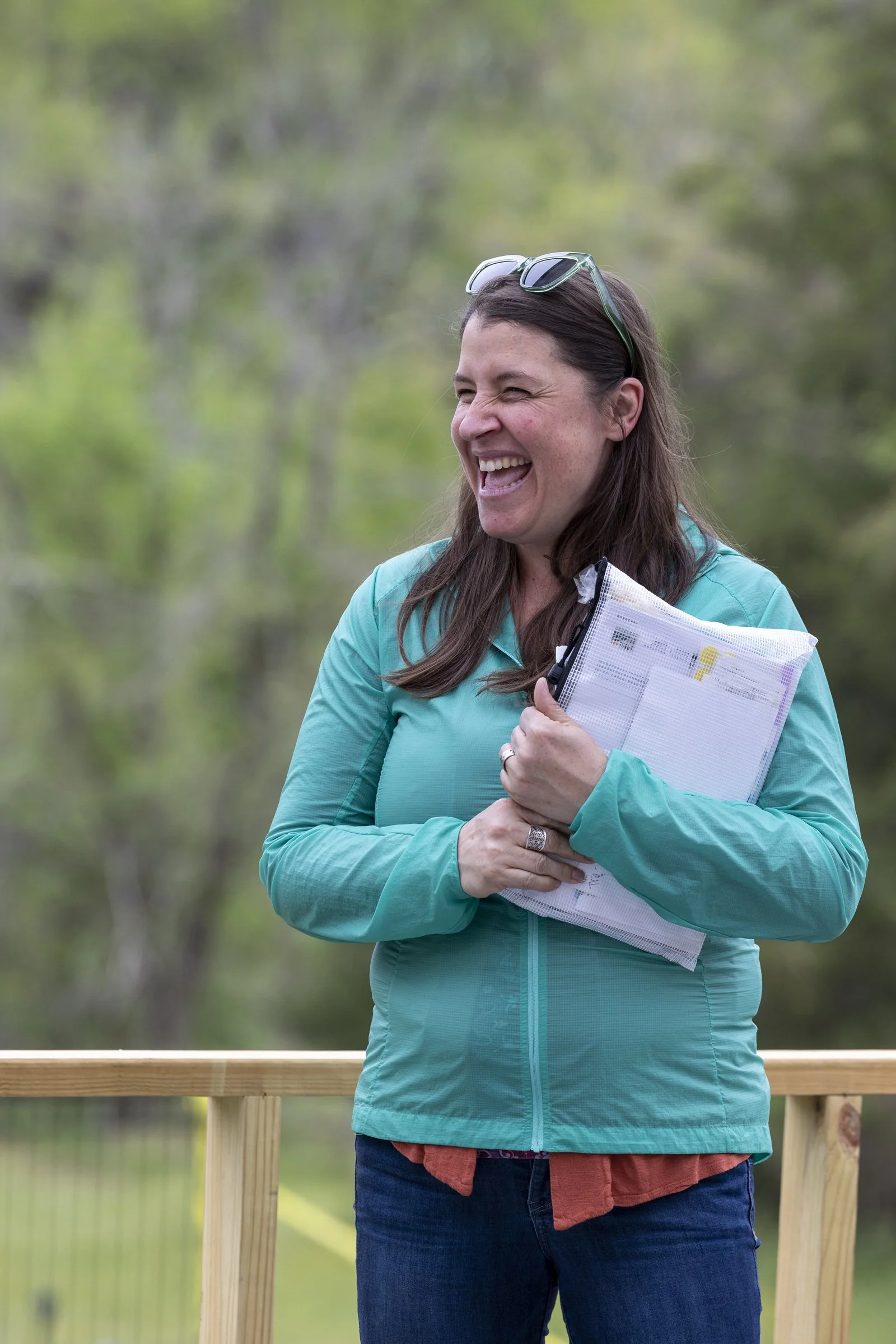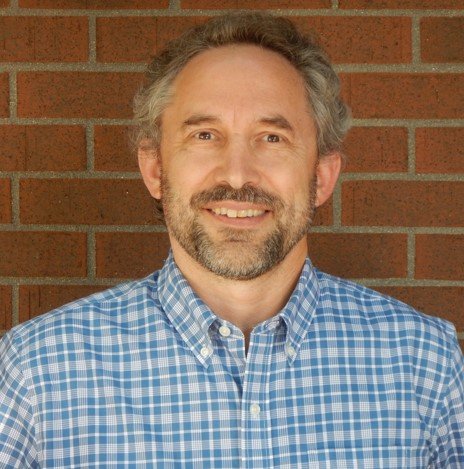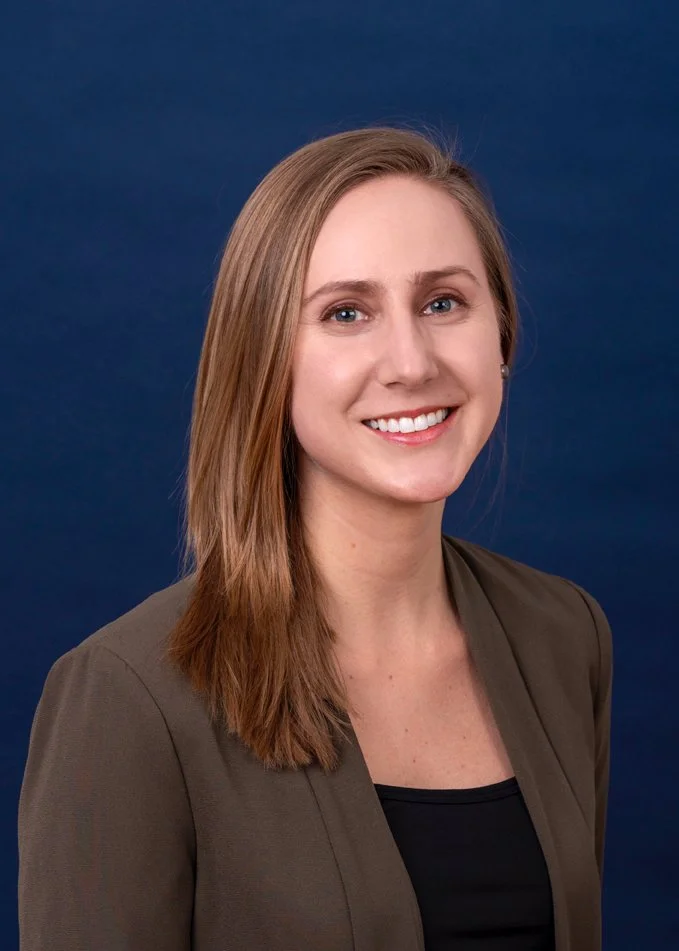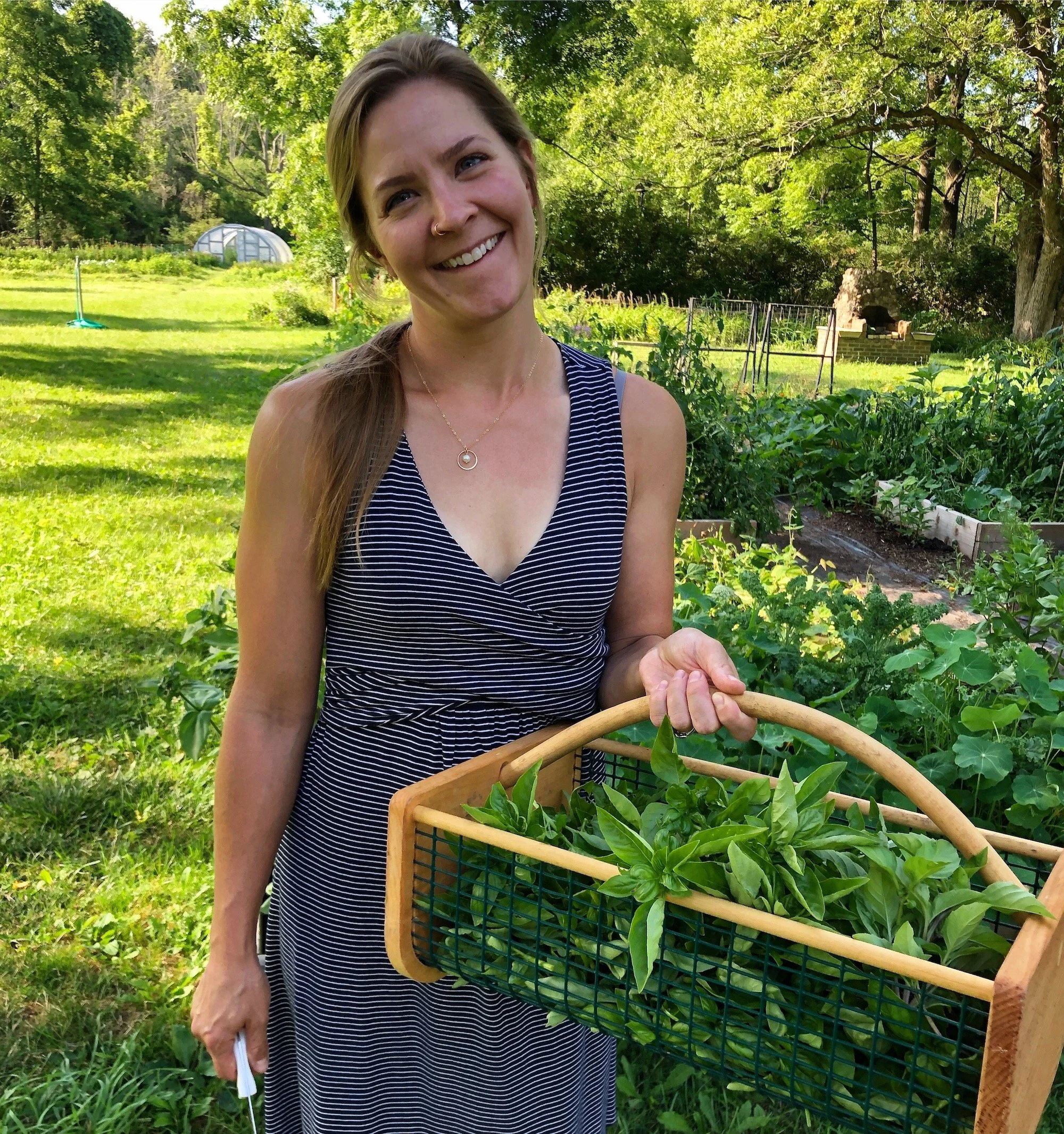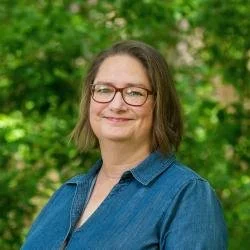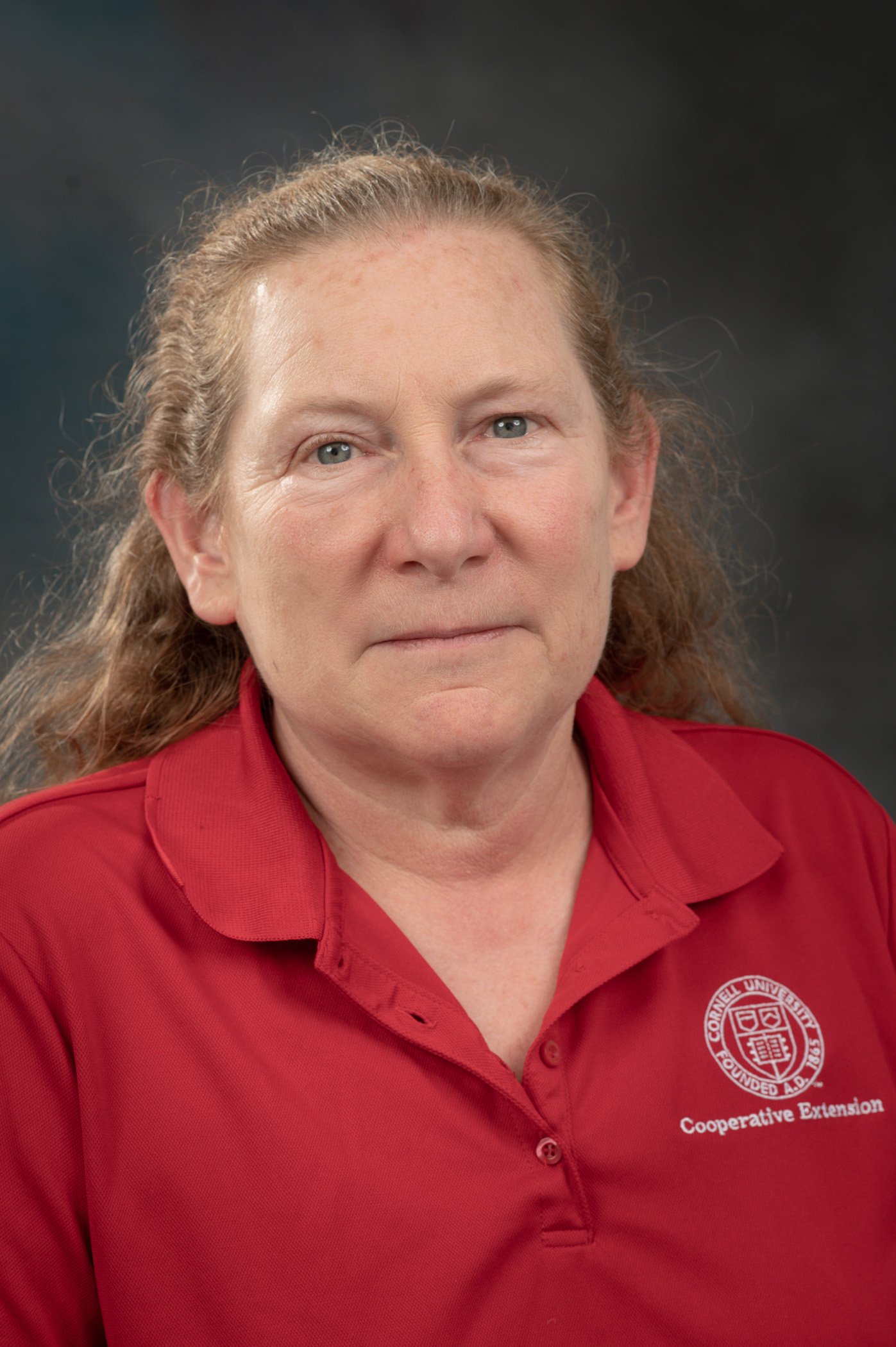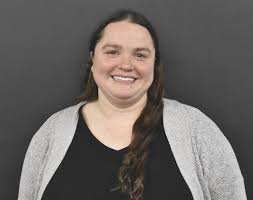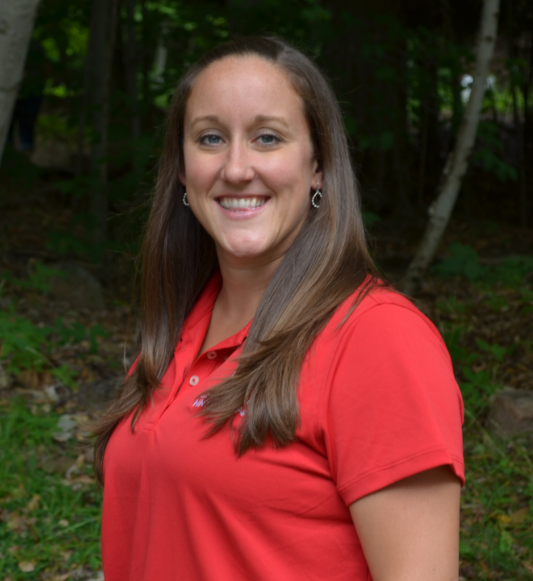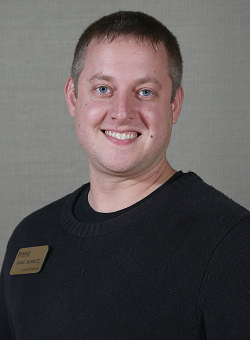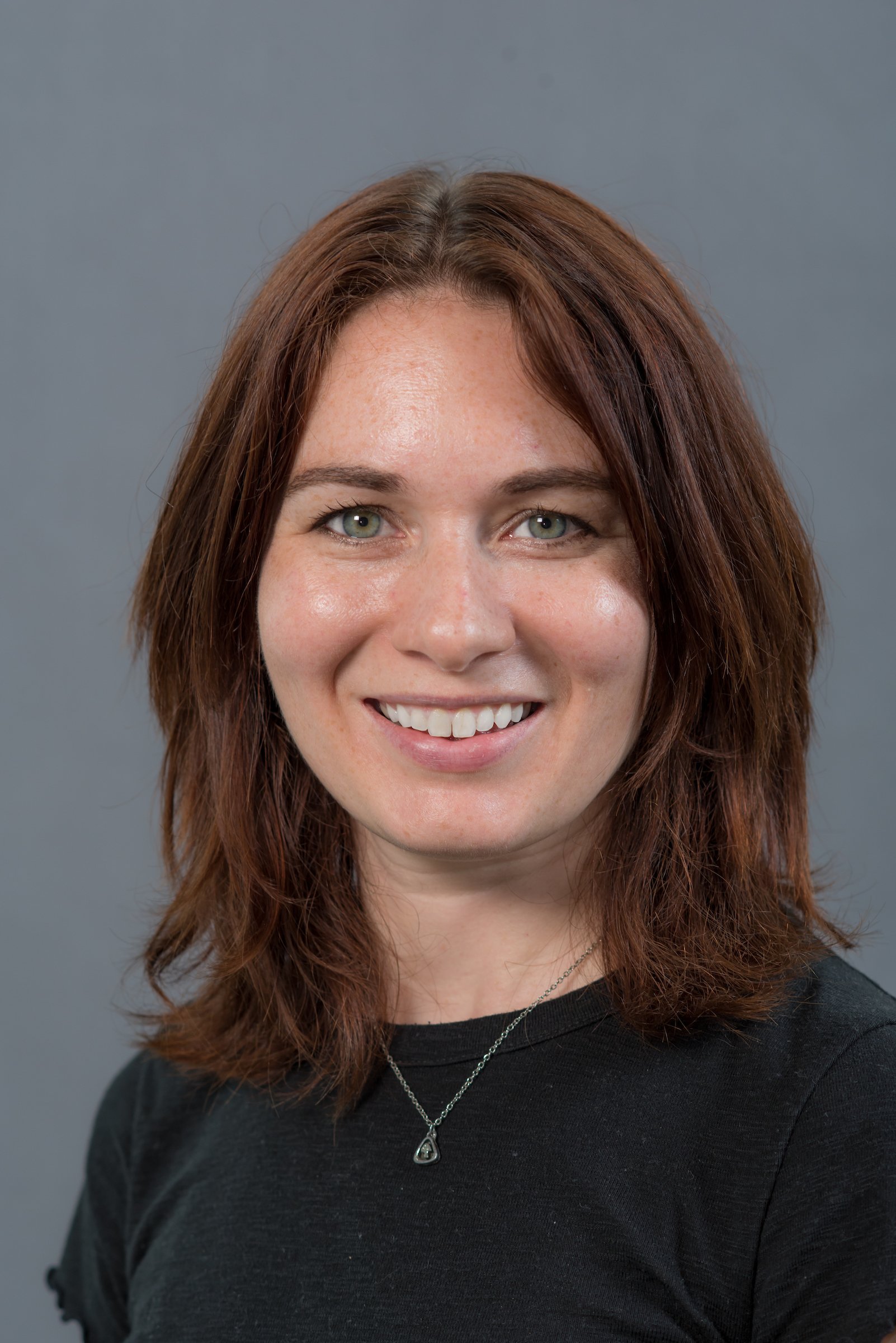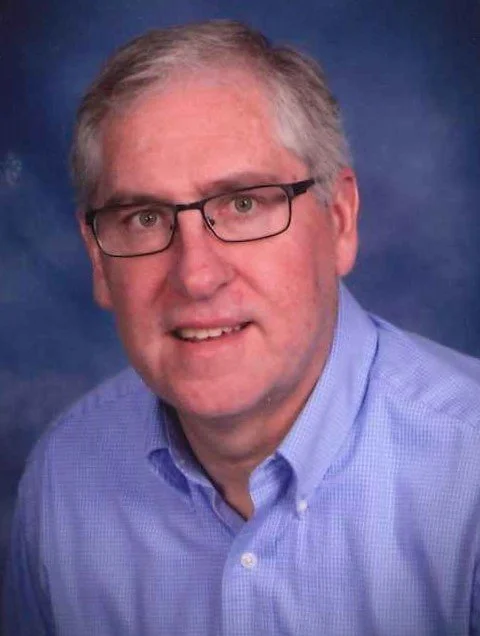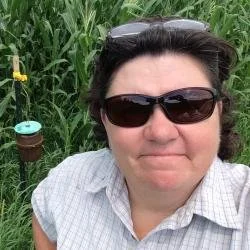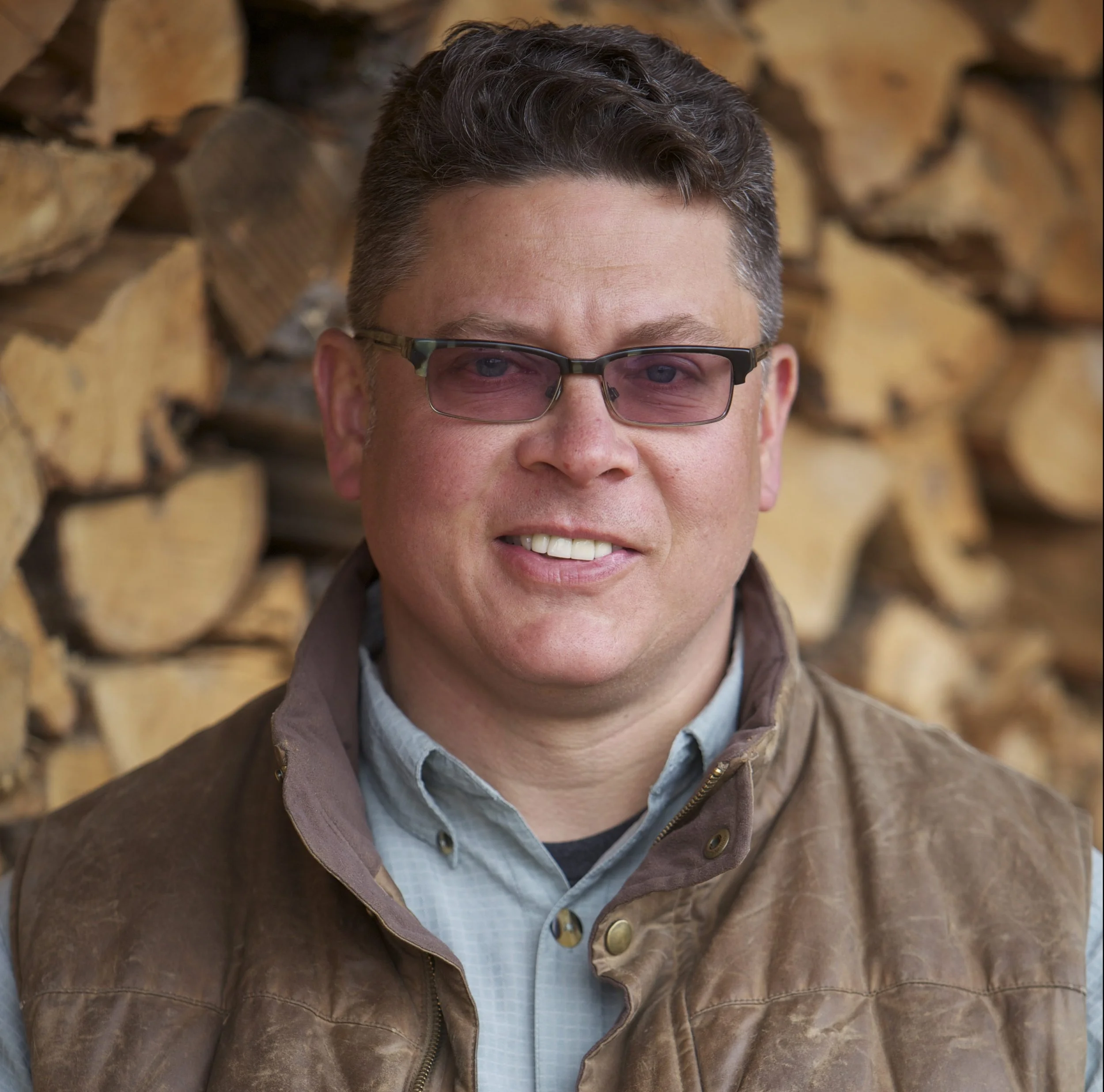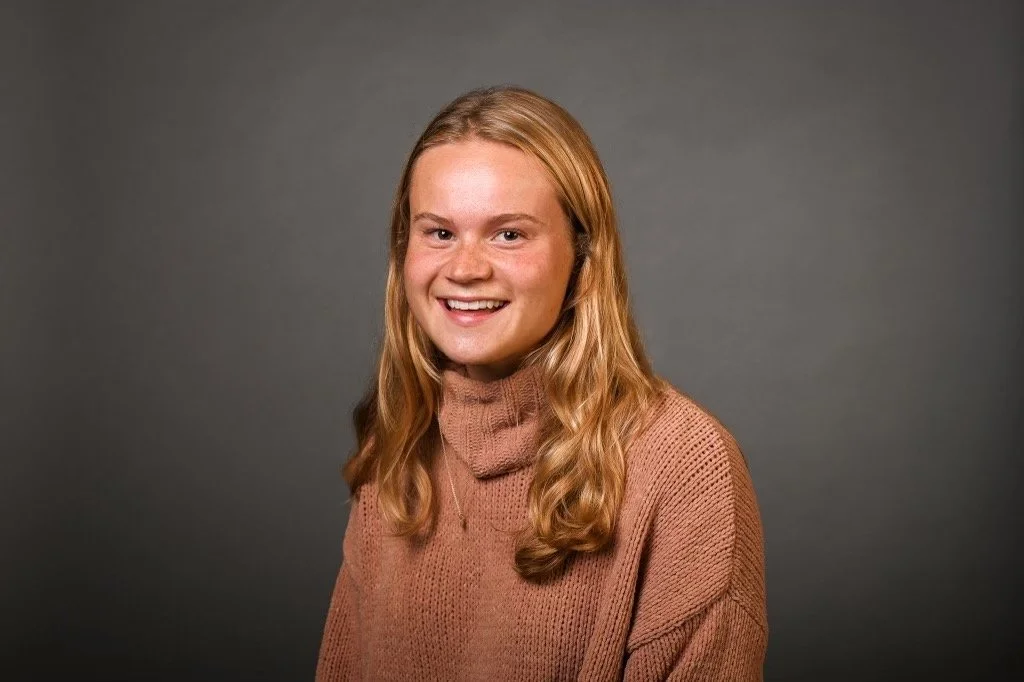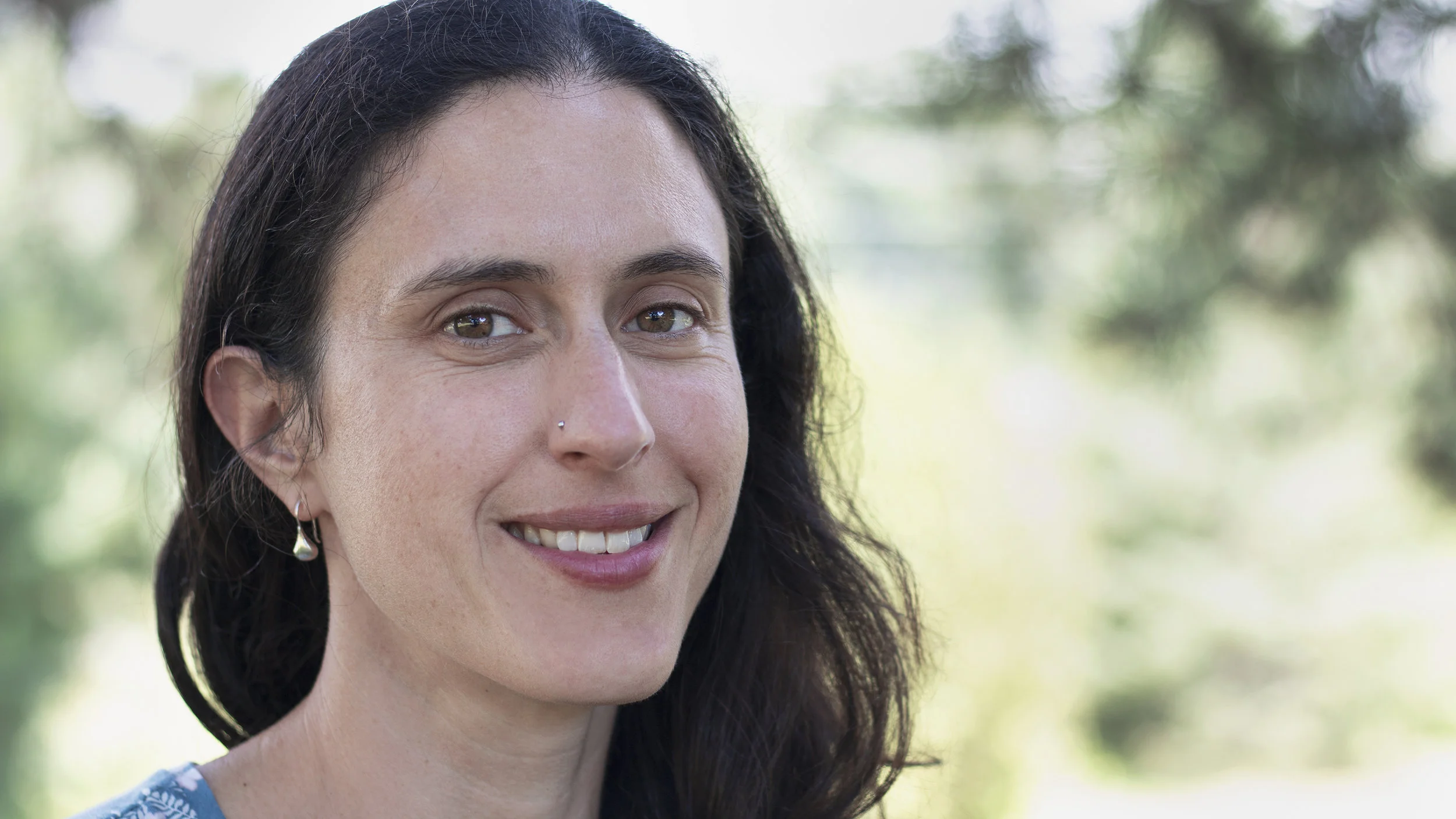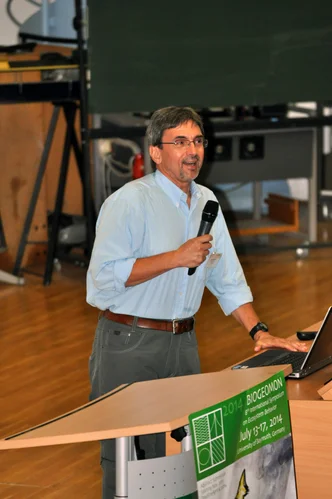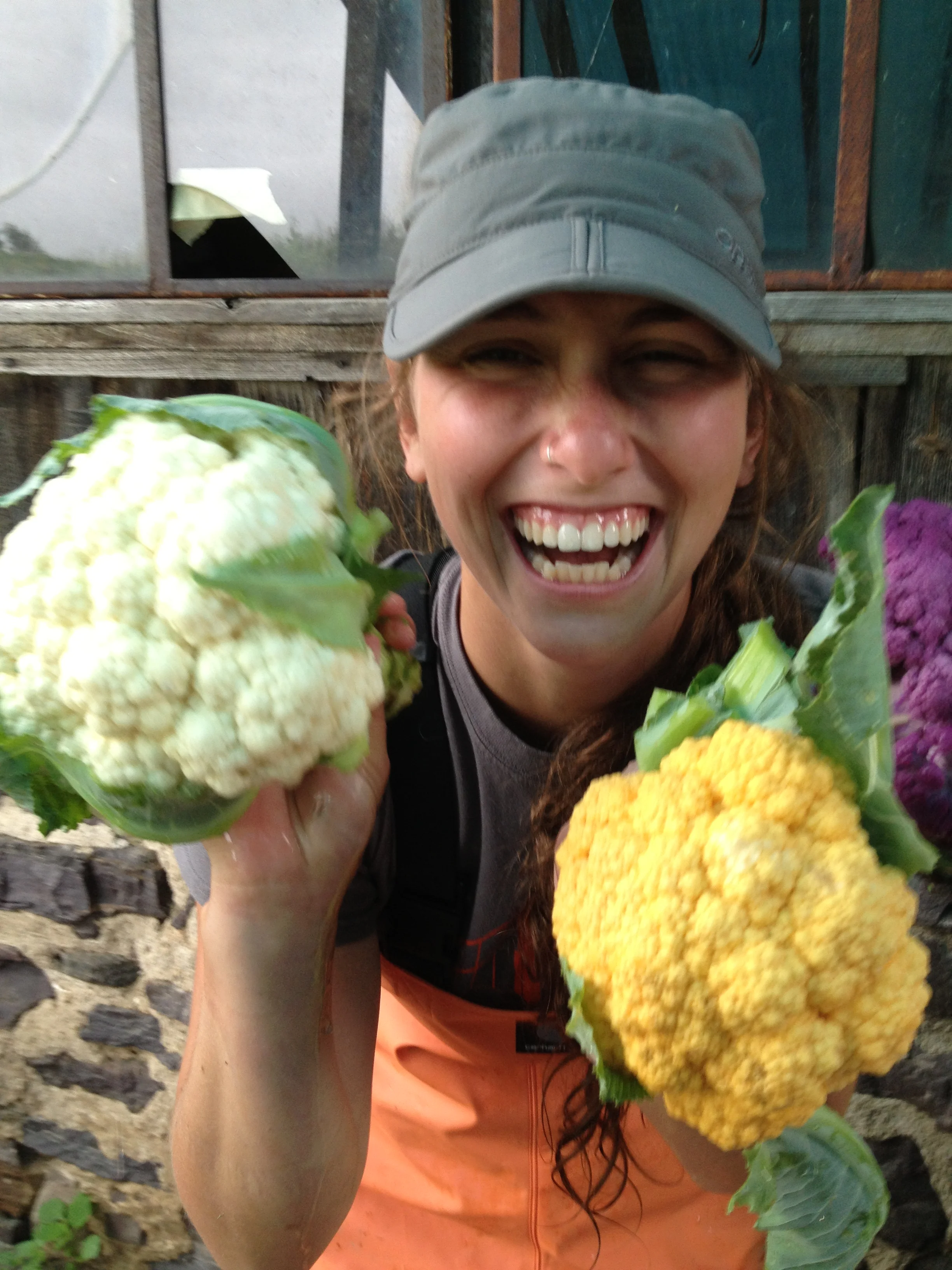CAMF Leadership
Rachel Schattman | University of Maine | Lead Principle Investigator
Dr. Rachel E. Schattman is an assistant professor of sustainable agriculture at the University of Maine. She is also a Fellow at the George J. Mitchell Center for Sustainability Solutions and an affiliated faculty member with the University of Maine Climate Change Institute. She is an agroecologist who works in both the social and natural sciences, with a focus on climate change and on-farm management decisions, as well as water use efficiency in northeast vegetable and small fruit production systems. She previously owned and managed a diversified vegetable farm in Vermont for 10 years, and also served as an Extension professional with University of Vermont Extension in the vegetable and berry program.
Kate Holcomb | University of Maine | Project Manager
Kate is the project manager for CAMF, and the program coordinator for the Diversified Agriculture and Agroforestry cohort. Kate has worked in agriculture for more than a decade, including founding and operating a year-round rooftop aquaponics greenhouse. She earned her B.A. from UMass Amherst and an MBA from the University of Southern Maine, where she focused on sustainability in small food businesses.
Co-Principle Investigators
Sean Birkel | University of Maine Extension
Diversified Agriculture and Agroforestry
Dr. Sean Birkel is the Maine State Climatologist and an Assistant Extension Professor in Cooperative Extension and an Assistant Professor in the Climate Change Institute at the University of Maine. He provides climate services through the Maine Climate Office, including production and translation of climate information to facilitate climate decision-making, policy, and planning. Birkel’s research includes climate variability and utilizes climate models and large gridded datasets.
Joshua Faulkner | University of Vermont
Diversified Agriculture and Agroforestry
Dr. Joshua Faulkner is the Climate and Farming Coordinator and Interim Director of the UVM Extension Center for Sustainable Agriculture, and a Research Associate Professor in the Department of Plant and Soil Sciences. He has over 10 years of experience working farmers in Vermont and throughout the Northeast on climate change related management topics, and served on the education team during the CAF pilot program (2021-2022).
Caleb Goossen | MOFGA
Diversified Agriculture and Agroforestry
Dr. Caleb Goossen is an Organic Crop and Conservation Specialist with the Maine Organic Farming and Gardening Association (MOFGA) where he provides direct support to farmers in Maine and around the Northeast. Caleb previously served on the education team of the CAF pilot program (2021-2022). He has 9 years of experience in agricultural research, outreach, and technical assistance. He also farmed organic vegetables commercially for 9 years.
Monica Jean | Michigan State University Extension
Row Crops
Monica Jean is a Fields Crop Educator with Michigan State University Extension, covering the Saginaw Bay region. Her position covers a large variety of crop production including corn, soybean, edible dry beans, potato and integrated crop and livestock systems. Monica is involved in climate adaptation, cover crop, soil health, nutrient management and cropping system research projects.
Marjorie Kaplan | Rutgers Climate Center
Women and Non-binary in Vegetable and Small Fruit
Dr. Marjorie Kaplan is Associate Director of the Rutgers Climate Institute and co-director of the New Jersey Climate Change Resource Center. She also co-facilitates the New Jersey Climate Change Alliance. Her career includes more than 20 years in state government, 10 years in the private sector, and 12 years in academia. She develops applied research and analyses related to natural carbon sinks, climate and agriculture, climate and health, and climate resilience. She was the first Director of New Jersey Department of Environmental Protection's Office of Climate and Energy where she oversaw regulatory and policy programs under the Global Warming Response Act, the Global Warming Solutions Fund Law and regional initiatives. She served on the leadership and education teams of the CAF pilot (2021-2022).
Erin Lane | USDA Northeast Climate Hub
Dairy, Diversified Agriculture and Agroforestry
Erin Lane is a soil carbon researcher, and the Coordinator of the USDA Northeast Climate Hub. She has 8 years of experience working with farmers, agricultural advisors, and researchers on climate and agriculture, and 25 years of federal service. She served in the leadership and education teams of the CAF pilot (2021-2022).
Katherine MacFarland | USDA National Agroforestry Center
Diversified Agriculture and Agroforestry
Kate MacFarland is an Agroforester with the USDA National Agroforestry Center, where she is part of the technical assistance and outreach team. She provides leadership for national and regional workshops and trainings, develops outreach materials for science delivery to a range of technical and general audiences and supports the integration of agroforestry into USDA programs.
Laurie Nowatzke | USDA Midwest Climate Hub
Row Crops
Dr. Laurie Nowatzke is the Coordinator of the Midwest Climate Hub in Ames, Iowa. In this role, she maintains the Hub's partnerships, coordinates interdisciplinary projects, and communicates current tools and resources on climate-smart strategies. Prior to joining the Hub, Laurie served as a project coordinator of water quality research and outreach at Iowa State University. Laurie holds a B.S. in biological sciences from Wright State University, a M.A. in environmental policy from Boston University, and a Ph.D. in rural sociology from Iowa State University. Her Ph.D. research examined the perspectives, barriers, and attitudes of Midwestern farmers who indicate willingness to adopt conservation practices in the future.
Gabrielle Roesch-McNally | American Farmland Trust
Women and Non-binary in Vegetable and Small Fruit
Dr. Gabrielle Roesch-McNally is the Director of the Women for the Land program at American Farmland Trust. In this role, she works to ensure that women landowners, farmers and aspiring farmers have access to resources, and technical advice they need. Her role also includes research and policy work relevant to working with historically underserved producers. Roesch-McNally previously served as a research fellow with the USDA Northwest Climate Hub.
Dennis Todey | USDA Midwest Climate Hub
Row Crops
Dennis Todey is the Director of the Midwest Climate Hub in Ames. He is a native Iowan with his BS and PhD from Iowa State in Meteorology and Agricultural Meteorology. He has spent two stints in South Dakota, first completing his MS at the South Dakota School of Mines and Technology and most recently as Associate Professor and State Climatologist for South Dakota at South Dakota State University. He is well known regionally as a speaker and media source on various climate issues and is the former president of the American Association of State Climatologists.
Project Leadership
Shelby Best | American Farmland Trust
Women and Non-binary in Vegetable and Small Fruit
Shelby Best is a Midwest Program Manager with American Farmland Trust. Shelby manages several AFT programs across the Midwest region. Before joining AFT, Shelby was the Sustainability & Resiliency Coordinator at Region 1 Planning Council, where she led sustainability planning work for local governments across the Northern Illinois region. Prior to that, Shelby worked for several conservation organizations, frequently meeting with landowners to assist in conserving and protecting their land. Shelby has a multi-disciplinary background in conservation, communications, research, planning, policy, and economics. Shelby holds a BSc in Psychology from Loyola University Chicago and an MSc in Environmental Technology from Imperial College London.
Stephanie Castle | American Farmland Trust
Women and Non-binary in Vegetable and Small Fruit
Stephanie leads the Women for the Land initiative in New York state, aimed at promoting sound farming practices and connecting women farmers and landowners to one another and with technical service providers. Stephanie, a fifth generation farmer, established her own small diversified farm in 2017. Before joining AFT in 2020, she led a coalition of ten Soil and Water Conservation districts throughout the Genesee River. Prior to that, she oversaw watershed management projects in Vermont and Maine. Throughout her career, she has specialized in soil health, peer-to-peer conservation, water quality, and communicating science to the public. Stephanie holds an M.S. in geoscience from Boston College and a B.A. in biogeochemistry.
Allison Chatrchyan | Cornell University
Dairy
Allison Morrill Chatrchyan is a Research Associate in the School of Integrative Plant Sciences, Soil & Crop Sciences Section, at Cornell University. Her work focuses on the interactions between social, legal, environmental, and agricultural systems. Dr. Chatrchyan facilitates interdisciplinary research and extension teams and develops resources, tools, and training programs on climate change science, impacts, adaptation, mitigation, and synergies, including the Cornell Climate Smart Farming Program and Extension Team. Before coming to Cornell, Dr. Chatrchyan worked for Cornell Cooperative Extension system in Dutchess County, NY, working with their Environment and Agriculture programs. A native of Hamilton, NY, she received her Ph.D. and M.A. from the University of Maryland College, and her B.A. from Colby College in Waterville, ME. She is passionate about teaching, working with stakeholders on climate change, traveling, and going on walks/kayaking in New York.
Janice Degni | Cornell Cooperative Extension
Dairy
Janice Degni has worked as a Cornell Cooperative Extension educator for 30 years. She is an agronomist with an MPS in plant protection and BS in agronomy, both from Cornell University (CU). She is the Team Leader and Field Crops Specialist for the South Central NY Dairy and Field Crops Team. The regional team serves 6 counties. Her work addresses management and production issues that farmers face in crop production and environmental stewardship. Currently her educational efforts are focused in the following areas: Integrated Crop Management, Environmental Stewardship, and Forage Quality. She provides resources, workshops and applied research. Throughout her tenure with CCE she has collaborated on applied research projects with Cornell faculty.
Sarah Ficken | Dairy Grazing Apprenticeship
Dairy
Sarah Ficken is the Grants Project Manager for DGA. She is also a first-generation dairy farmer in Madison County, NY. With her husband Chris. The thing she enjoys most about farming is getting to be an active part of the ecosystem. Her favorite cow is named Plum and her favorite chore is moving cows to fresh grass. She has a B.S. in Natural Resources from Cornell University and a M.S. in Agriculture from Washington State University. Sarah is passionate about building just and resilient food systems. She has 10 years of experience supporting farmers through her roles at Cornell Cooperative Extension of Madison County and NOFA-NY. When not farming, Sarah enjoys picnics "up the hill" with her family, embroidering, and drinking coffee.
Lindsay Ferlito | Cornell Cooperative Extension
Dairy
In 2011, Lindsay completed her MS in Animal Science from the University of British Columbia Animal Welfare Program, with a thesis focused on dairy cattle welfare and feeding behavior. Lindsay joined the Cornell Cooperative Extension North Country Regional Ag Team as a Regional Dairy Specialist in 2016. The regional team covers the 6 counties in NNY. Her passions and areas of focus include cow comfort, lameness, cow behavior, and facility design. She has also been a member of the Cornell Climate Smart Farming Team since 2019.
Marlee Giacometti | American Farmland Trust
Women and Non-binary in Vegetable and Small Fruit
Marlee is a program associate for American Farmland Trust’s Midwest Team. Most of her work focuses on crop diversification efforts in the Midwest. She promotes sound farming practices and provides technical assistance to farmers interested in growing perennial bioenergy crops across the region. Before joining AFT, Marlee worked in the biofuels industry as an environmental compliance coordinator and completed a 2- year farm management apprenticeship on a diversified vegetable and livestock farm in Massachusetts. Marlee holds a BS in conservation & environmental science from University of Wisconsin-Milwaukee and is an alumni of AmeriCorps NCCC Atlantic Region Class 21.
Kate Holcomb | USDA Northeast Climate Hub + University of Maine
Diversified Agriculture and Agroforestry
Kate has worked in agriculture for more than a decade, including founding and operating a year-round rooftop aquaponics greenhouse. She earned her B.A. from UMass Amherst and an MBA from the University of Southern Maine, where she focused on sustainability in small food businesses. Her work in farming prioritizes community education, grounded in the belief that a strong connection between the farm and the community makes local food systems more resilient.
Hans Schmitz
Row Crops
Hans Schmitz received his B.S. and M.S. degrees in Agricultural Meteorology from Purdue University. He previously had roles in various counties over 15 years with Extension, before transitioning to serve as Conservation Cropping Systems Agronomist for the state. His expertise lies at the nexus of soil health and climate smart agriculture. Hans lives in Cynthiana, Indiana, with his wife, Cindy, and two children. In his spare time, Hans manages the family farm, a sixth-generation grain and cattle operation.
Haley Schneider | University of Maine
Women and Non-binary in Vegetable and Small Fruit
Haley Schneider is an Assistant Professor of Communication at the University of Maine. Her research focuses on how communities form and transform over time to respond to environmental threats. Schneider is a member of the Rural Community Health and Wellbeing Cluster at the University of Maine. She teaches courses in Environmental Communication, Digital Communication, and Rhetorical Theory and Method. Prior to joining the University of Maine, Schneider earned her Ph.D. in Communication from Penn State University.
Program Advisors
Curtis Dell | USDA Northeast Climate Hub
Dairy
Dr. Curtis Dell has been a Research Soil Scientist with the USDA-Agricultural Research Service at University Park, PA since 2001. He is also a Co-Leader of the USDA Northeast Climate Hub. His research in PA focuses on carbon and nitrogen cycling in manure-amended and pasture soils. He studies the impact of nutrient management on water and air quality with an emphasis on measurement of nitrogen gas emissions (nitrous oxide and ammonia). He received a PhD in soil microbial ecology from Kansas State University in 1998), where his research addressed impacts of fire on soil N cycling in tallgrass prairies. He received his M.S. in soil microbiology from Purdue University in 1991, and BS in agronomy from Purdue University in 1985.
Kitty O’Neil | Cornell Cooperative Extension
Dairy
Dr. Kitty O’Neil works to improve the yield and production efficiency of field crops and forages – a goal that requires smart crop management and a keen understanding of climate-related risks and long-term soil health. A field crops and soils specialist, she leads the North New York field crops team, which designs crop and soil management programs to serve the region’s farms. Kitty’s research has included cropping systems and the effects of soil amendments and cover crops on soil health on potato farms. She earned a B.S. in animal science from Cornell University, an M.S. in animal nutrition and plant biochemistry, and a Ph.D. in sustainable plant and soil cropping systems, both from Michigan State University.
Keith G. Tidball
Dr. Keith G. Tidball is a Senior Extension Associate in the Department of Natural Resources and the Environment at Cornell University. He is also an Assistant Director of Cornell Cooperative Extension, where he manages New York State’s Natural Resources and Environment extension portfolio. Keith is trained as an environmental anthropologist and naturalist focused on better understanding how to amplify recruitment of citizen conservationists and how to facilitate the development of a 21st century land ethic. He has worked in US and international extension, both with the USDA Foreign Ag Service and with Cornell University for over 25 years. He lives with his family on their 200 acre farm over-looking Cayuga Lake.
Content Development
Kristin Benson
Kristin grew up as a 4-H kid in a dairy farming family in Gorham, Maine. Early on she became passionate about agricultural sustainability and received her Bachelor's degree in Environmental Science from the University of Southern Maine. With a background in Cooperative Extension and farm management, she went back to school to find ways to better support farmers as they transition to climate smart practices. Kristin completed her Master’s from Cornell University in Global Development, having concentrated in International Agriculture and Rural Development from Cornell University. Today Kristin works to support farmer’s economic and environmental sustainability in Maine and beyond. She is passionate about farmer-centered education, resource conservation, and agroecology.
Candace Hulbert | Cornell University
Candace Hulbert works with the recently funded National Science Foundation’s AI-CLIMATE Institute (National AI Research Institute for Climate-Land Interactions, Mitigation, Adaptation, Tradeoffs, and Economy) which aims to advance AI technology in climate, agriculture, energy, cybersecurity, and education. Candace’s work with AI-CLIMATE centers around public engagement, stakeholder education, and extension to encourage farmers, ranchers, and foresters to implement AI technology as a tool to mitigate and respond to climate change. Candace received her MPS in Natural Resources and the Environment from Cornell University in 2023 and has BAs in English and Political Science from the University of Michigan. From January 2021 to August 2023, Candace coordinated the Weather Ready Farms program at the University of Nebraska Extension. The Weather Ready Farms program is an agricultural education program aimed at offering farmers new strategies and technologies to prepare for extreme weather events and climate variations. Candace's research interests include climate-smart agriculture; digital agriculture, disaster preparedness and recovery; agricultural systems research; agroecology; voluntary participation research; environmental justice; and stakeholder engagement.
Past Leadership
Joshua Faulkner | Project Principle Investigator, Co-Project Lead, Vegetable and Small Fruit Lead Author
Dr. Joshua Faulkner is a Research Assistant Professor for University of Vermont Extension. He has coordinated the Farming and Climate Change Program in UVM Extension’s Center for Sustainable Agriculture for the past six years. He does applied research, outreach, and education on soil, water, and nutrient related issues across the state and region. He also works with farmers on practices and innovative solutions to improve the management of these resources and enhance farm resilience to climate change. His focus spans across all agricultural sectors, and from the farmstead to the watershed scale
Erin Lane | Co-Project Lead, Peer Review Lead
Erin Lane is the Coordinator for the USDA Northeast Climate Hub. The Climate Hubs promote climate-informed decision-making for farms and forest lands. Erin is a career employee of the US Forest Service and joined Northern Research Station in 2014. Her background and education are in fire ecology in the Northeast and she is one of the leaders of the North Atlantic Fire Science Exchange. Duties for both organizations include bringing people together, cultivating communications, and sharing experiences to improve efficiency and productivity. Erin has strong passion for collaboration and working together toward solutions. For this project, Erin’s role was overall project leader providing direction and guidance throughout the process including facilitating the advisory team, overseeing the implementation of sector module development, organizing peer reviews, and facilitating transitions from proposal to implementation to piloting.
Rachel Schattman | Project Co-PI, Curriculum Literature Review Team, Vegetable and Small Fruit Team
Dr. Rachel E. Schattman is a Research Fellow with the USDA Northeast Climate Hub, and an Affiliate of the UVM Extension Vegetable and Berry Program. Her research focuses on climate change perceptions and how they influence on-farm management decisions, as well as water use efficiency in northeast vegetable systems. She completed her doctoral work in social science and agroecology at the University of Vermont in 2016, where she investigated farmer perspectives on climate change adaptation and risk management. She has been the leader on several USDA Climate Hub research and outreach projects, including a National survey with USDA field employees on their understanding of the risks associated with climate change. She has published on best practices for designing educational climate change curricula for adult learning audiences, drawing upon her history as an Extension specialist and researcher.
Marjorie Kaplan | Project Co-PI, Advisory Committee, Curriculum Literature Review Team
Dr. Marjorie Kaplan’s work has been at the nexus of environmental science, natural resources, and human and ecological health at the federal and state level, for a major utility, and two international consulting firms. At RutgersUniversity, she works across the University in developing and managing research, outreach and education on understanding the climate system and the impacts of a changing climate across the natural, social and policy sciences. She is Rutgers liaison to, and participates in the research of, the USDA Northeast Climate Hub. She co-facilitates and conducts analyses on behalf of the New Jersey Climate Change Alliance, a nonpartisan network of organizations that share the goal of advancing science-informed strategies to address climate change in New Jersey.She holds a Masters and Doctorate (with distinction) in Public Health from Columbia University and a Bachelor’s Degree in Natural Resources from Cornell University.
V. Ernesto Méndez | Project Co-PI, Curriculum Literature Review Team
Dr. Méndez is the co-Director of the Agroecology and Livelihoods Collaborative, and Professor of Agroecology & Environmental Studies in the Department of Plant and Soil Science and the Environmental Program, University of Vermont. His research and teaching efforts seek to develop and apply transdisciplinary approaches that analyze interactions among agriculture, people’s livelihoods, and environmental conservation in a diversity of settings. This work draws from the fields of agroecology, agrifood systems, political ecology and ecosystem services. He uses a Participatory Action Research approach (PAR) whenever possible, in an effort to transform research into actions that will benefit the smallholder farmers and organizations that we work with. He wasborn and raised in El Salvador, and has over 25 years of experience working with smallholder farmers and Indigenous communities in Mesoamerica, and collaborating in agroecology efforts in a wide diversity of regions.
Todd Ontl | Project Co-PI, Forestry Lead Author
Todd Ontl is the Fellow for the USDA Northern Forests Climate Hub with the Northern Institute of Applied Climate Science. His work focuses on helping natural resource professionals integrate climate change into forest managementand developing resources and educational materials to both help people adapt natural ecosystems to a changing climate and manage forests for carbon benefits. Todd’s previous work includes an M.S in rangeland restoration ecology, a Ph.D. on soil carbon cycling in agroecosystems, and post-doc research on climate change impacts to carbon fluxes in northern peatlands.
Glen Koehler | Project Co-PI, Tree Fruit Lead Author
Glen Koehler has directed the University of Maine Cooperative Extension Tree Fruit Integrated Pest Management (IPM) Program since 1988. He served for 10 years as coordinating editor of the New England Tree Fruit Management Guide. Recognizing the critical impact of weather on orchard management decisions, for the past 23 years he has developed and operated Ag-Radar, an automated online system that translates observed and forecast hourly weather into apple pest and horticultural risk assessments and management advisories. Recently he became co-founder of AgEye Weather, a provider of high-resolution, real-time hourly weather data from the NOAA forecast and observation gridded weather databases used as the foundation for weather reports in the United States. Koehler added climate change coverage to his Extension work in 2012, developing presentations for tree fruit growers and the public. In 2015, he helped establish the UMaine Climate and Agriculture Network.
Ivan J. Fernandez | Project Co-PI, Advisory Committee, Forestry Team
Ivan J. Fernandez is Professor in the School of Forest Resources, Climate Change Institute, and School of Food and Agriculture at the University of Maine. He has served on various U.S. Environmental Protection Agency Science Advisory Board committees in Washington DC since 2000. He recently chaired and continues to serve on a panel of the EPA Clean Air Scientific Advisory Committee (CASAC) that is evaluating secondary effects of the Clean Air Act. He represents the University of Maine in the USDA Northeast Climate Hub, and has been involved in leading the Maine’s Climate Future assessments in 2009 and 2015. He is a soil scientist, with a research program that focuses on the biogeochemistry of ecosystems in a changing physical and chemical climate and is actively engaged in promoting climate adaptation in Maine.
Daniel Tobin | Project Co-PI, Evaluation Lead
Daniel Tobin is a rural sociologist and evaluation specialist in the Department of Community Development and Applied Economics at the University of Vermont. His research interests broadly focus on how small farmers respond to external factors such as markets, policies, and environmental pressures. He has worked extensively with farmers both domestically and internationally on topics ranging from on-farm food safety to value chain development. He recently conducted a needs assessment for the USDA Northeast Climate Hub on the agricultural sector’s vulnerabilities to and adaptation opportunities for climate change, which included assessments of farmers’ perspectives as well as the research and outreach of land-grant universities in the Northeast. As part of this project, Tobin’s primary responsibilities are monitoring and evaluation to help ensure high quality and relevant curriculum.
Hannah Aitken | Project Coordinator, Curriculum Literature Review Team
Hannah Aitken grew up in West Hartford, Connecticut. She attended the University of Vermont in the Environmental Studies Department, where she completed a thesis on school gardens and local food systems in 2010. Hannah has worked for a variety of agricultural enterprises and non-profit organizations, including the Vermont Community Garden Network, the UVM Agroecology and Livelihoods Collaborative, Burnt Rock Farm, and Bella Farm (where she initiated and managed a work-place CSA program dedicated to serving employees of a local elder care facility.) Most recently, she completed a season of working in Antarctica as an employee of Polar Services S.A.

